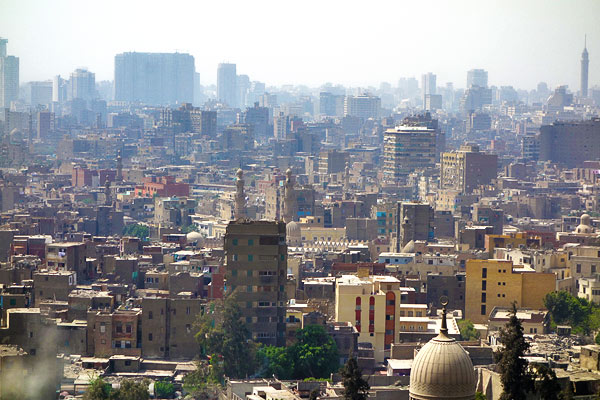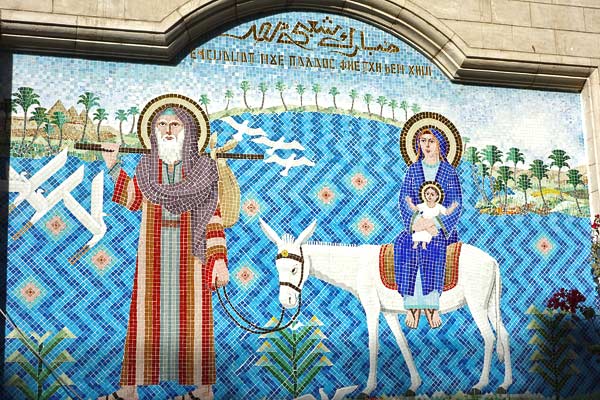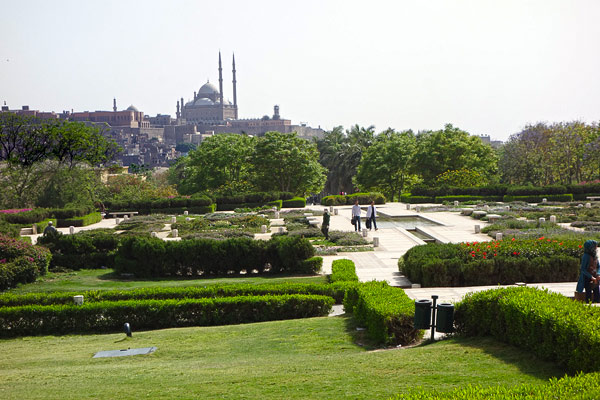Vast as Cairo is, it's a small world for the traveler when it comes to sights and tourist-friendly stops. Local guides, local friends, and both guidebooks I'm using all dip into the same tiny pool of a handful of sights, restaurants, cafés, parks, concert venues, and hotels in this teeming city of 17 million. Every time my guide takes me somewhere, I check my guidebook...and it's there. Every time I see something in my guidebook I want to visit, my guide is taking me there anyway.

Cairo teems with 17 million people, most of them scrambling to make ends meet.
Cairo's grand sights -- the pyramids and the Egyptian Museum -- are magnificent...absolutely world-class. Those are enough in themselves to make the long trip to Egypt worthwhile. But the other sights in Cairo are humble. Mosques, while historic, feel forlorn except when filled with worshippers on Friday. Oddly, in the National Museum -- with the most beautiful things I saw, the treasures of ancient Egypt -- photos are strictly forbidden.

There's been a Christian community in Egypt since the time of St. Mark. In Coptic Christian churches, mosaics remind all that Mary and Joseph fled with their baby to Egypt to escape King Herod's decree to kill all newborn boys.
Egypt is 10 percent Coptic Christian, and the history of Christianity in Egypt goes back to the first-century visit of St. Mark (whose bones rested in Alexandria until stolen by Venetian merchants in the ninth century to put their city on the pilgrim map). But the Christian presence is small and low-key.
With the rise of Muslim power (a persistent dimension of the nascent democracies of the Arab world), Christian communities throughout Islam lay low, build taller fences, and come with lots of police security. Just this week, several Christians were killed in a small riot here in Cairo. (I know that might sound shocking. But during the same week, several Christians were also killed in Chicago -- a city with half of Cairo's population.)
Cairo's Coptic Museum, set in the restored walls of the ancient Roman fort, is charming, if humble. It seems the scant surviving artifacts of a rich heritage speak to centuries of edgy coexistence (alternating with periods of plunder) with the dominant Muslim society. The narthex of the Coptic church was lined with photos of Coptic patriarchs through the ages powwowing warily with Egypt's various Muslim political bosses.
Any person in Cairo with 5 Egyptian pounds (about a dollar) can buy entrance into Al-Azhar Park, the only park in the center -- an oasis of green where young couples enjoy a respite from the intensity of the city and a stroll through a rare garden with ponds and fountains and shade. Sitting in circles, friends giggle and flirt. Joining them for the standard tourist-meets-locals conversation, I pondered the downside of population density and the upside of population sparsity.

Cairo's lone park, Al-Azhar, offers an escape from the intensity of the seething streets.